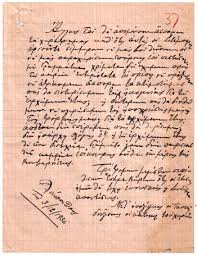
The court in Re Grace estate 2022 BCSC 1283 reconsidered its judgment prior to entry of the order and reached a different conclusion as a result of the presumption of due execution not be having been argued before the court.
The Court had mistakenly followed the reasoning of the Supreme Court of Canada in Vout v Hay without having had the benefit of the presumption of due execution argued at the hearing.
The Presumption of Due Execution
The court relied heavily on the BC Court of Appeal case Yen Estate v. Chan, 2013 BCCA 423 [Yen Estate].
In that case, the Court upheld the decision of the trial judge finding that the will had been proven in solemn form: Yen Estate v. Yen-Zimmerman, 2012 BCSC 1620. As explained by the Court of Appeal at para. 12, the trial judge had relied on presumptions that were discussed in Re Laxer, [1963] 1 O.R. 343, 37 D.L.R. (2d) 192 (C.A.) [Re Laxer] and Guardhouse v. Blackburn (1866), L.R. 1 P. & D. 109 [Guardhouse].
The Ontario Court of Appeal upheld the use of the presumption by the trial judge.
The Court adopted the interpretation of the Latin maxim of the presumption from the reasons of Lord Justice Lindley in Harris v. Knight (1890), 15 P.D. 170 (C.A.) at 179-80:
The maxim, “Omnia praesumuntur rite esse acta,” is an expression, in a short form, of a reasonable probability, and of the propriety in point of law of acting on such probability. The maxim expresses an inference which may reasonably be drawn when an intention to do some formal act is established; when the evidence is consistent with that intention having been carried into effect in a proper way; but when the actual observance of all due formalities can only be inferred as a matter of probability. The maxim is not wanted where such observance is proved, nor has it any place where such observance is disproved. The maxim only comes into operation where there is no proof one way or the other; but where it is more probable that what was intended to be done was done as it ought to have been done to render it valid; rather than that it was done in some other manner which would defeat the intention proved to exist, and would render what is proved to have been done of no effect.
At para. 25, the Court of Appeal agreed with the trial judge’s reasoning. It noted, at para. 26, that Vout supports the use of presumptions in proving a will in solemn form. It had not been necessary in Vout for the Court “to direct its mind to availability of a presumption to prove due execution of the will because there was direct evidence in that case the will had been properly executed.”
As noted at para. 27, the appellants in Yen Estate also submitted that there was no evidence that the contents of the will were read by, or brought to the attention of, the testator. They argued that, as a result, the prerequisites for the presumption that the testator knew and approved the contents of the will were not satisfied. Relying on Guardhouse as cited in Re Musgrove, [1927] P.264 at 278 (C.A.), the Court of Appeal rejected that argument. The Court stated at para. 29:
This authority of the Privy Council has stood for almost two centuries. I am not persuaded there is good reason to cast it aside. I do not believe that the statement at para. 26 of Vout v. Hay or a similar statement in Maddess v. Gidney Estate, 2009 BCCA 539 at para. 29, were intended to alter this principle because there was affirmative evidence in those cases the contents of the will had been read or explained to the testator.
Yen Estate stands for the proposition that the presumption of due execution applies where the evidence establishes that the testator signed the will in accordance with the requisite formalities. As stated at para. 30, “the testator’s execution of the will creates a rebuttable presumption that he or she had knowledge of and approved the contents of the will.” [Emphasis in original.]
Yen Estate has been followed in a number of cases, including Bhalla Estate, 2017 BCSC 1867 at para. 19 and Thom v Thom, 2016 BCSC 681 at para. 65.
. In Bhalla Estate, those challenging the validity of the will relied on the lack of evidence about interpretation services provided to the testator, who did not read or speak English. As recounted at para. 20, they argued “that despite the apparent satisfaction of the formal requirements of s. 4 of the Wills Act [R.S.B.C. 1996, c. 489], on its face there is no basis to conclude that the deceased actually knew what she was signing”. Justice Betton rejected those arguments. At para. 23, he referred to the significance of the presence of an attestation clause. At para. 25, he held that “In all the circumstances and based on the authorities provided by counsel, I am satisfied that the will was indeed duly executed in compliance with the Wills Act, and that the presumptions in respect of knowledge and approval and testamentary capacity apply subject to evidence of suspicious circumstances.”
The court held that it was bound by the Yen Estate, and the principles in Hansard Spruce Mills Limited (Re), [1954] 4 D.L.R. 590 (B.C.S.C.) mandate to follow Bhalla Estate.




